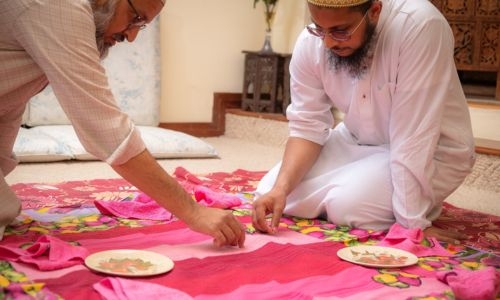The Dawoodi Bohra community in Bahrain has become a beacon of sustainability in a world facing food insecurity and environmental challenges, drawing inspiration from Islamic teachings that emphasize the importance of not wasting food. Guided by their leader Sultan al-Bohra Syedna Mufaddal Saifuddin, the community has established a structured approach to sustainability through their ‘Dana Committee’, which focuses on zero food waste.
A key volunteer, Khadija Sadriwala, explains that the Dana Committee follows a three-phased approach to prevent food wastage. By accurately gauging attendance using RSVP apps and sheets, the committee ensures the right amount of food is prepared for events. At communal meals, attendees are reminded to serve themselves only what they can finish, and any excess food is hygienically packaged and distributed to those in need after the meal.
The culture of zero food waste within the Dawoodi Bohra community is not a recent development but has been ingrained in their teachings for years. The formalization of the Dana Committee about a decade ago has led to significant progress in promoting mindful eating and reducing food waste across homes, mosques, and community centers. This community-led initiative has been well received, with individuals becoming more conscious of their portions and food choices.
The success of the Dawoodi Bohra community in reducing food waste has attracted attention both internationally and locally, leading to collaborations with organizations like the Robin Hood Army and initiatives like My Clean Plate. By championing sustainability and mindfulness in food consumption, the community hopes to inspire others to adopt similar approaches. Through youth-led awareness campaigns and education programs, societal attitudes towards food consumption and waste management can be positively influenced.
One of the standout features of the Dawoodi Bohra community’s efforts is their commitment to ensuring surplus food reaches those in need. The Dana Committee works closely with labor camps, staff accommodations, and the Bahrain Food Bank to distribute leftovers, ensuring that the food provided is fresh, safe, and hygienic. By combining faith, sustainability, and community service, the community sets an example for addressing the global issue of food waste, inspiring others to follow suit.
In conclusion, the Dawoodi Bohra community in Bahrain stands out as a model of sustainability through their zero food waste initiative, driven by the timeless teachings of Islam. By emphasizing the importance of not wasting food and implementing practical strategies through the Dana Committee, the community showcases how faith, sustainability, and community service can work together to address pressing issues like food waste. Their efforts serve as an inspiration for others in Bahrain and around the world to prioritize mindful eating, reduce food waste, and promote a more sustainable future.











